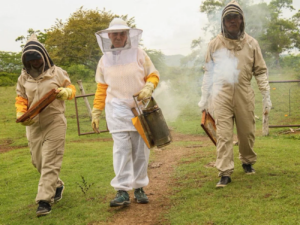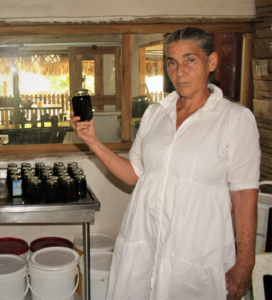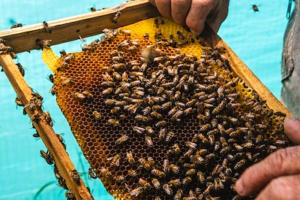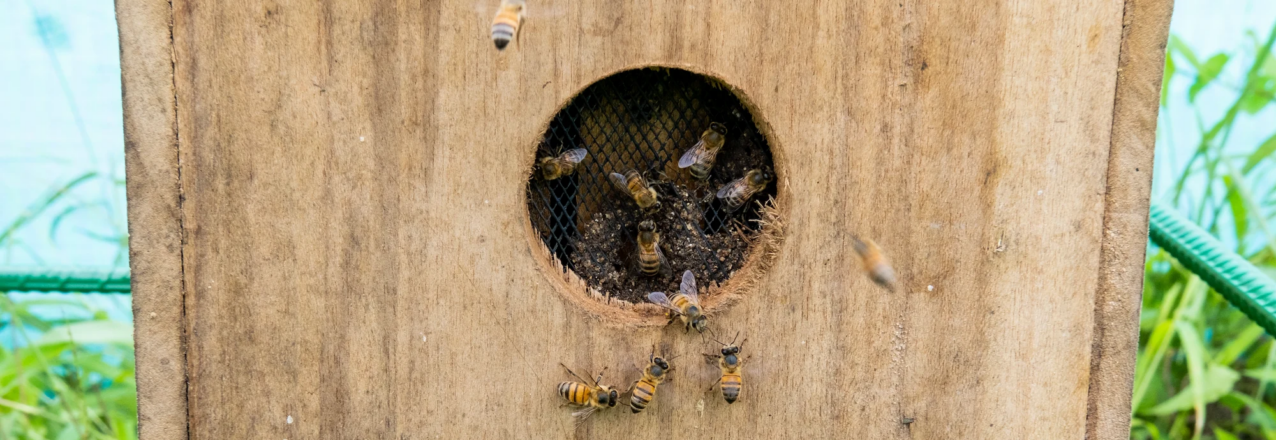A public-private partnership, facilitated by USAID, is increasing the economic and environmental benefits for beekeepers in the Montes de María.
 In the Montes de María, a sub-region of the Colombian Caribbean region characterized by the abundance of its tropical dry forest, great stories of resilience have been consolidated thanks to the art of beekeeping.
In the Montes de María, a sub-region of the Colombian Caribbean region characterized by the abundance of its tropical dry forest, great stories of resilience have been consolidated thanks to the art of beekeeping.
One of these stories arises thanks to the honest work that for more than 50 years Tomasa, la de la miel, as Tomasa Elena Calonge Ortiz, legal representative of La Casa de la Miel, a company that markets real honey and beehive products, has been able to win the hearts of the inhabitants of the territory and, above all, safeguard the ancestral knowledge about the management of traditional beekeeping.
 Everybody who has tasted it, says Tomasa’s honey is unparalleled. Tomasa Calonge partners with only the hardest working bees, and she does not add sugar, which is critical to producing pure honey and a guarantee to appeal to the palates of those who recognize quality.
Everybody who has tasted it, says Tomasa’s honey is unparalleled. Tomasa Calonge partners with only the hardest working bees, and she does not add sugar, which is critical to producing pure honey and a guarantee to appeal to the palates of those who recognize quality.
Tomasa is from a family of beekeepers who arrived in El Carmen de Bolívar nearly 30 years ago. She and the industrious bees have built the company La Casa de la Miel, located in the Montes de María region of northern Colombia.
“I arrived empty-handed, but I brought my heart and the knowledge of an ancestral art that can only be transmitted with love,” says Tomasa Calonge.
Increasing deforestation and the use of pesticides in industrialized agriculture threaten the trade. But Tomasa continues working with her local community to share her knowledge and skills in beekeeping and create a market for excellent honey.
“Our work honors the tropical dry forest which makes Montes de María unique, but beekeeping is not an easy path these days,” she says.
A Partnership for Honey
 A public private partnership (PPP) in the honey value chain facilitated by Land for Prosperity will give Tomasa and over 680 beekeepers in the Montes de María region the chance to offer quality honey products to people across Colombia. The PPP, valued at more than US $1.1 M, is netting investments from a wide range of public institutions and supports 22 beekeeper associations.
A public private partnership (PPP) in the honey value chain facilitated by Land for Prosperity will give Tomasa and over 680 beekeepers in the Montes de María region the chance to offer quality honey products to people across Colombia. The PPP, valued at more than US $1.1 M, is netting investments from a wide range of public institutions and supports 22 beekeeper associations.
The PPP is instrumental in the creation of the region’s first Honey and Beekeeping Committee, a body of like-minded farmers, processors, and traders who can work together in economies of scale to achieve commercial success. At the producer level, the PPP aims to strengthen business plans and consolidate direct sales with commercial partners like La Casa de Miel and Apiarios de la Sabana. The PPP will also help beekeepers with the process of achieving health and sanitary authorizations and a denomination of origin for honey produced in Montes de Maria.
“With USAID support, we hope this partnership will help us to promote our honey and make its quality known. Honey that is fresh and wisely extracted by our bees from the forests of Montes de María,” explains Tomasa Calonge.
Land for Prosperity seeks to expand licit economic opportunities by mobilizing public and private funds for local public goods and services and encourage private sector participation in value chain partnerships.
Since 2020, Land for Prosperity has facilitated 25 public-private partnerships in key value chains like coffee, cacao, and honey, as well as other cash crops like lime, sesame, and papaya. The partnerships have already mobilized over USD $92M in funds to build local capacity to plan for and execute public resources, improve marketing and establish new commercial agreements, and promote inclusion and empowerment among women and youth.


